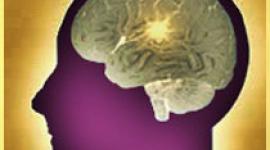Coping Methods for the Family
Things to consider to help you cope with a family member who has bipolar disorder or another mental illness.
Supporting Someone with Bipolar - For Family and Friends
 No one is to blame and you cannot cure a mental disorder for a family member.
No one is to blame and you cannot cure a mental disorder for a family member.- Despite medication compliance, episodes may occur. It may take some time to find the right medications and dosages. Additionally, the symptoms of the disorder may change over time, requiring medication adjustments.
- Despite your efforts, the symptoms may get worse.
- Separate the person from the disorder. Love the person, hate the disorder and separate the medication side effects from the disorder/person.
- It is NOT okay for you to neglect your needs. Take care of yourself, ensuring you have a rich and fulfilling life. Do not shoulder the whole responsibility for your family member. You may have to assess your emotional commitment.
- There is nothing to be ashamed of if someone in your family has a neurological chemical brain disorder.
- It is natural to experience many strong emotions such as denial, grief, guilt, fear, anger, sadness, hurt, and confusion. Healing occurs with acceptance and understanding. Allow your affected family member and other family members to go through their grieving processes at their own pace. This is also true for you.
- You may have to re-evaluate your expectations. Your family member's successes may be experienced differently from others. However, recognizing that a person has limited capabilities should not mean that you should expect nothing of them. It is important to set boundaries and set clear limits.
- Do not be afraid to ask if your family member is contemplating suicide. Remember that suicide attempts are a cry for help. Often the individual is trying to escape from the consequences of the disorder, and they feel hopeless. Their thinking and judgment at this time may be impaired; they may not understand that they are seeing the world through the symptoms of their disorder. Do not put up a barrier to open communication.
- Remember that irritability and unusual behavior can be a symptom of the disorder; do not take it personally.
- Forgive yourself and others sense of humor.
- Allow your family member the dignity to make his or her own choices; do not patronize, but encourage.
Recognize Pending Episodes
To minimize the effects of mania and depression and the consequences, it is important to identify pending episodes. Early recognition can prevent severe impairment in social and occupational functioning. Potential harm to relationships and the family unit can be minimized. Recognizing and treating episodes in their early stages can allow individuals to lead a healthy, productive life.
Even though your family member may be medicated, prescription drugs may not eliminate all episodes of mania or depression. You can help your family member by recognizing marked changes in their behavior.
Factors that could exacerbate a pending episode may be related to the environment, stress, or an unhealthy lifestyle.
An increase or change in usage of mood altering substances through the use of stimulants and depressants such as caffeine, smoking, alcohol, prescription drug abuse, and illegal narcotics may also indicate a problem exists.
Please do not judge your family member; it is common to abuse these substances in an attempt to decrease the effects of the disorder. However, the use of these substances will defeat the purpose of the prescribed medications, decreasing their effectiveness, and potentially create an unwanted mood swing.
What To Do in a Crisis
Listen
Let the person unload despair and ventilate anger. If given the opportunity to do this, he will feel better. This is a cry for help.
Be sympathetic
A non-judgmental, patient, calm acceptance of the situation will get you faster results.
Do not hesitate to ask if they are feeling suicidal; you are not putting ideas in his head; you are doing a good thing for him. You are showing him you are concerned, that you take him seriously and that it is okay for him to share his pain with you.
Do not trivialize his problems. Simply talking about how he is feeling will give him relief from loneliness and pent-up feelings. It will confirm a feeling of being understood.
Assess the situation
There are three criteria to 95% of all suicidal people: PLAN, MEANS, and TIME SET
PLAN - Has he thought about how he would accomplish his goal?
MEANS - Does he have the ability to carry through his plan?
TIME SET - Has he thought about when he would do it?
Know when to get help. Don't go it alone if he has taken an overdose, ask what and how much and contact your local poison control center. If the poison control center indicates medical assistance is required, either transport him to your nearest hospital, or call for an ambulance.
If there is a possibility he is manic, point out the fact that he may be having an episode by using examples of how his current behavior has changed. Ask him if he has been taking his medication as prescribed.
Encourage him to seek professional help. Remember that when someone is feeling manic, they are often unaware that there is anything wrong; they may react in a defensive way towards you. Let them know you are concerned. If you suspect he is delusional or is hallucinating, please contact your nearest hospital.
Common Concerns and Reactions of Siblings
The following are some of the common thoughts and reactions that occur when a sibling has been diagnosed with a mental illness. By understanding these thoughts, you or the sibling may be better able to assess and deal with these issues.
- Siblings of the diagnosed family member are affected in their relationships within the family and friends; their own thoughts and self-image may be affected.
- The healthy sibling may try to escape physically and/or emotionally from the family. They may place boundaries or barriers to separate from the family or from friends.
- The healthy sibling may take sides within the family. He may feel obligated to be a mediator, however, his own feelings may be in conflict.
- Healthy children may feel preferential treatment is given to the affected family member.
- Healthy children may adopt a more serious disposition and approach to life.
- Healthy children may feel inadequate with their ability to handle crisis situations; include them in discussions about suicide prevention and intervention. The healthy sibling may mature at an earlier age and feel that they "lost" their childhood compensating for their affected sibling's shortcomings.
- Siblings may experience concern anticipating extended care of their family member, even though this may not be realistic.
- They may worry that they could be or might become like the affected family member.
- They also could have concerns about whether they should have children or not. Will their children be affected with the disorder?
- Healthy children may overcompensate to prove their mental health and stability, or to show that they are normal.
- Healthy children will likely feel anger and resentment at the affected sibling and feel guilty that they were not diagnosed with the disorder.
- Embarrassment and feelings of shame for the family may be experienced after diagnosis of mental illness in the family.
- Healthy children may experience grief over the change in their brother or sister.
- They may experience difficulty in establishing and maintaining a healthy relationship with their affected sibling.
- Healthy siblings may also have feelings of disagreement with diagnosis, not realizing that they are in denial.
Family Matters
Monitor Behavior
- Monitor behavior without being intrusive. Be discreet. Individuals who are experiencing symptoms of mania will probably deny that there is anything wrong with them. People in depression will often isolate from the family. They need to know you still love them.
- Monitor any reckless or endangering activity.
- Pay attention to any extravagant expenditures or excessive shopping sprees. This could indicate a potential manic episode.
- Listen carefully to word choices to determine an impending episode. If you notice rapid speech, this could be hypomania. It is important to acknowledge the symptoms you see and confront the family member with how they are feeling to find out if there is a problem, or if it is just a normal fluctuation in mood.
Maintain a Close Relationship
- Tell your family member how much you love them and mean it. Give them a hug when they need one.
- Treat your family member with dignity and respect.
- Include your family member at family gatherings and outings. However, recognize that sometimes your family member may not feel able to attend because of symptoms associated with the disorder or their medications.
- If your family member does not live at home, contact them by telephone on a regular basis.
- Offer assistance. If they do not have transportation, offer to go shopping with them or to help do their laundry. Prepare frozen dinners that can be re-heated.
next: Dealing with Anger and Guilt After A Suicide
~ bipolar disorder library
~ all bipolar disorder articles
APA Reference
Staff, H.
(2008, December 13). Coping Methods for the Family, HealthyPlace. Retrieved
on 2026, February 23 from https://www.healthyplace.com/bipolar-disorder/articles/coping-methods-for-the-family



